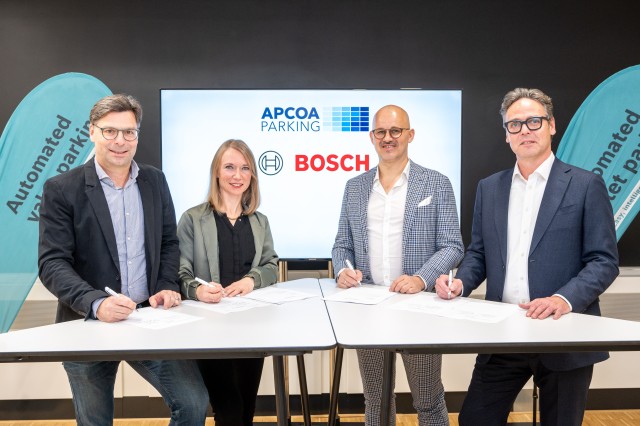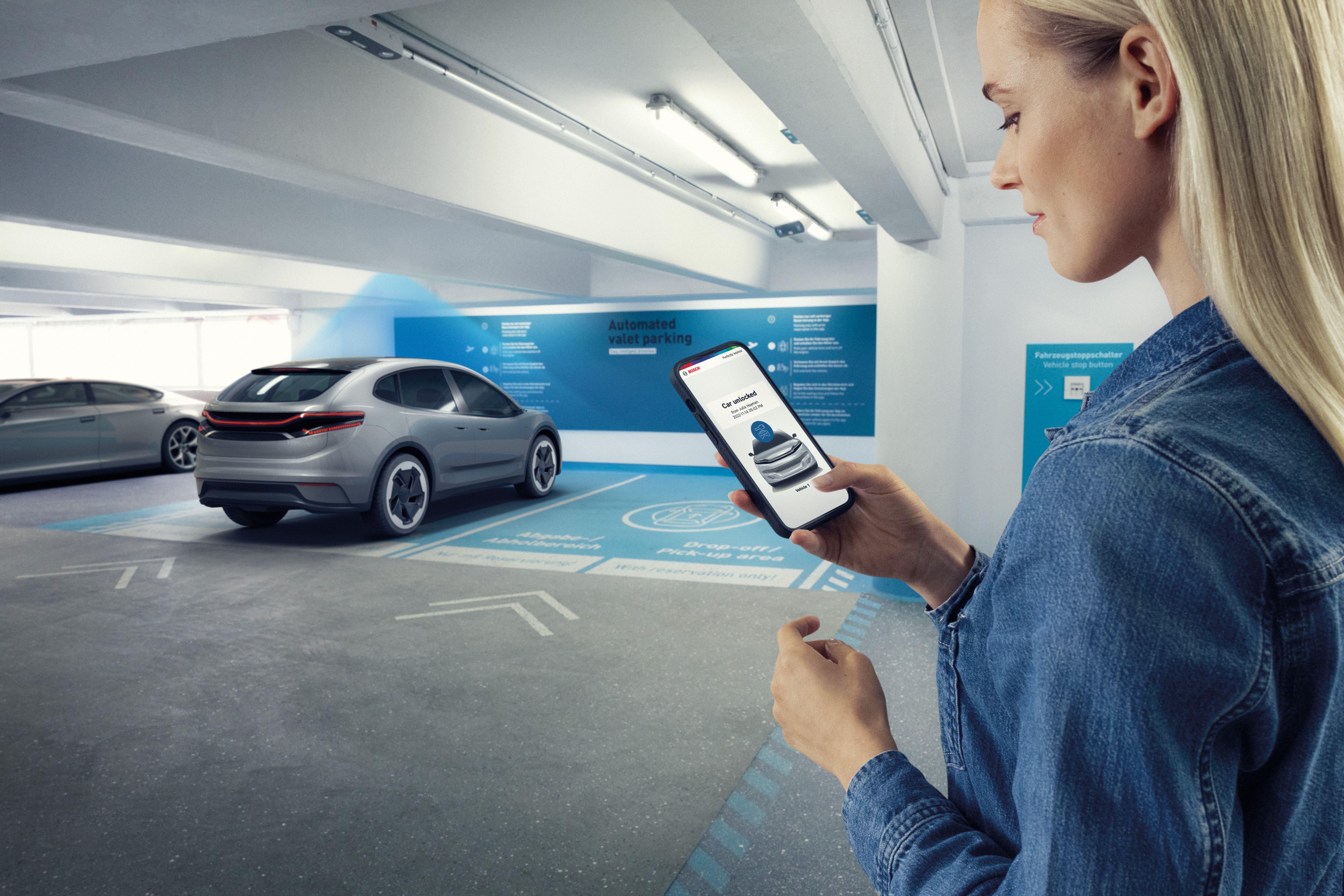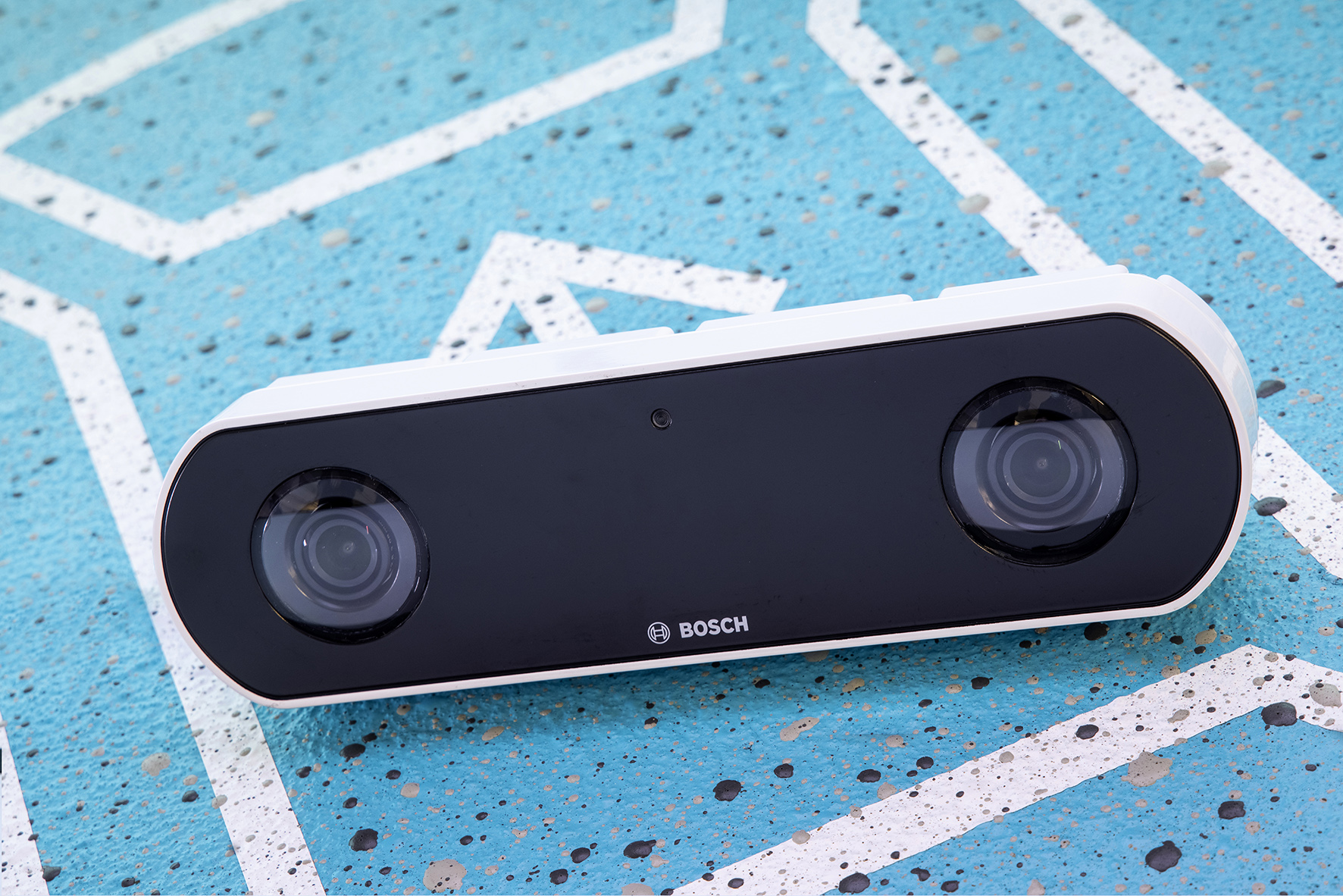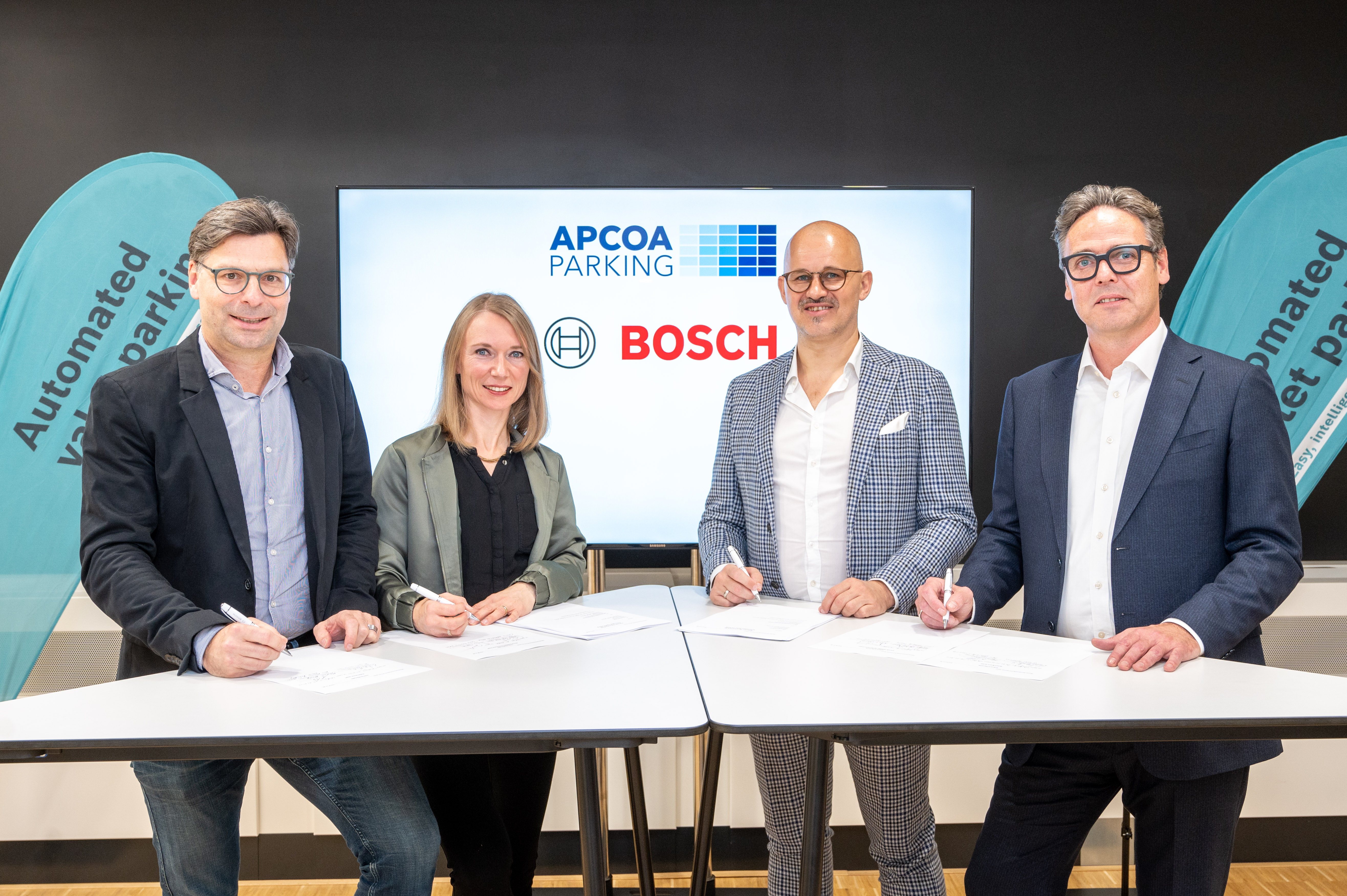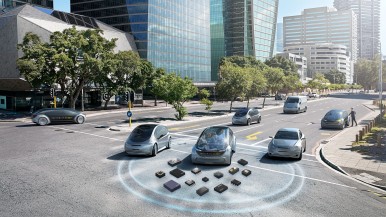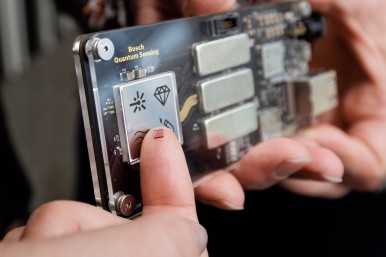Stuttgart, Germany – Now that automated valet parking has been approved for commercial use in the P6 parking garage at Stuttgart airport, Bosch and APCOA are branching out and installing the technology in 15 further parking garages in Germany. From Hamburg to Munich, work to expand the infrastructure-based, automated, and driverless SAE Level 4 parking system is set to start in 2023. As a first step, Bosch and APCOA are planning to make up to four parking spaces per parking garage ready for automated valet parking. “We will expand the number of such parking spaces based on the expected ramp-up of vehicles featuring automated valet parking. Our experience with charge spots for electric vehicles shows us how important it is for infrastructure growth to keep pace with the technology. Together with our partner APCOA, we are now making sure that this will be the case for automated valet parking,” says Dr. Markus Heyn, member of the Bosch board of management and chairman of the Mobility Solutions business sector. In the years ahead, Bosch’s modular system will allow the number of parking spaces featuring the infrastructure technology to be quickly expanded to up to 200 parking bays at each of the 15 locations.
Mobility is the largest Bosch Group business sector. According to preliminary figures, it generated sales of 55.9 billion euros in 2024, and thus contributed around 62 percent of total sales. This makes the Bosch Group one of the leading mobility suppliers. Bosch Mobility pursues a vision of mobility that is safe, sustainable, and exciting. For its customers, the outcome is integrated mobility solutions. The business sector’s main areas of activity are electrification, software and services, semiconductors and sensors, vehicle computers, advanced driver assistance systems, systems for vehicle dynamics control, repair-shop concepts, as well as technology and services for the automotive aftermarket. Bosch is synonymous with important automotive innovations, such as electronic engine management, the ESP anti-skid system, and common-rail diesel technology.
The Bosch Group is a leading global supplier of technology and services. It employs roughly 417,900 associates worldwide (as of December 31, 2024). According to preliminary figures, the company generated sales of 90.5 billion euros in 2024. Its operations are divided into four business sectors: Mobility, Industrial Technology, Consumer Goods, and Energy and Building Technology. With its business activities, the company aims to use technology to help shape universal trends such as automation, electrification, digitalization, connectivity, and an orientation to sustainability. In this context, Bosch’s broad diversification across regions and industries strengthens its innovativeness and robustness. Bosch uses its proven expertise in sensor technology, software, and services to offer customers cross-domain solutions from a single source. It also applies its expertise in connectivity and artificial intelligence in order to develop and manufacture user-friendly, sustainable products. With technology that is “Invented for life,” Bosch wants to help improve quality of life and conserve natural resources. The Bosch Group comprises Robert Bosch GmbH and its roughly 470 subsidiary and regional companies in over 60 countries. Including sales and service partners, Bosch’s global manufacturing, engineering, and sales network covers nearly every country in the world. Bosch’s innovative strength is key to the company’s further development. At 136 locations across the globe, Bosch employs some 86,900 associates in research and development, of which nearly 48,000 are software engineers.
Additional information is available online at www.bosch.com, www.iot.bosch.com, www.bosch-press.com.

